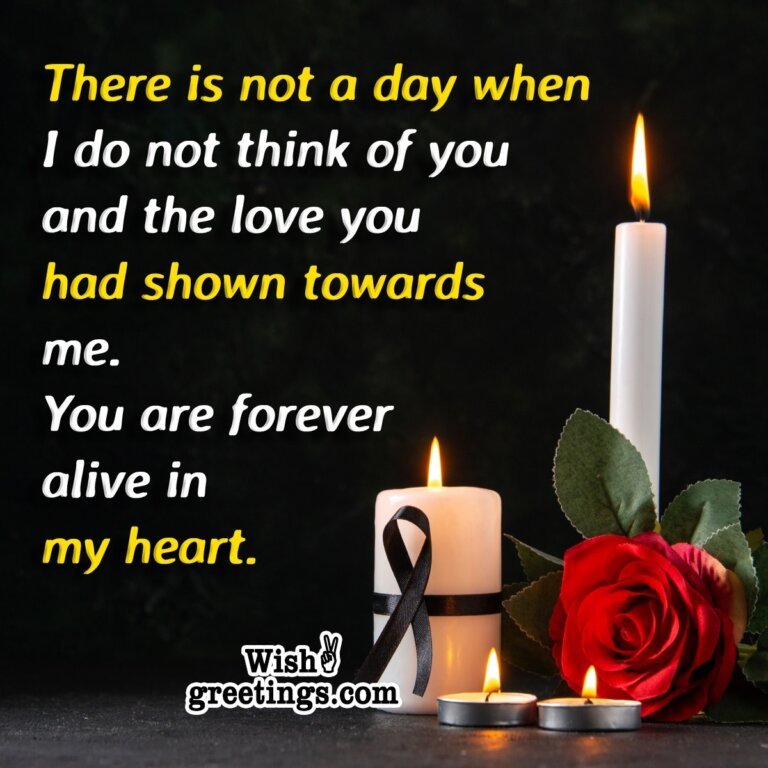It’s been one year since they left, but the void they left behind still lingers in our hearts. Whether you’re searching for the perfect 1st anniversary death messages or simply trying to find ways to honor a loved one, this moment holds deep meaning for those who remain. The pain of loss never truly fades, but the power of words can help heal and bring comfort to grieving souls.
When someone we love passes away, life changes forever. The first anniversary of their passing is a significant milestone that can evoke a mix of emotions—sadness, longing, gratitude, and even joy for the life they lived. Finding the right words to express these complex feelings isn’t always easy, but it’s worth the effort.
In this guide, we’ll explore meaningful 1st anniversary death messages, tips for crafting your own heartfelt tributes, and ways to honor the memory of the departed. Let’s dive in, because sometimes, all it takes is the right phrase to make someone feel seen and heard during their darkest moments.
Read also:Dylans Troubles With His Girlfriend The Inside Story
Here’s a quick overview of what you’ll find:
- Biography of Loss: Understanding Grief
- Key 1st Anniversary Death Messages
- Crafting Personalized Messages
- Honoring Traditions on the First Anniversary
- The Science of Grieving
- Resources for Healing
- Building a Support System
- Inspiring Stories of Remembrance
- Using Technology to Preserve Memories
- Final Thoughts: Moving Forward
Biography of Loss: Understanding Grief
Grief is a universal experience, yet everyone navigates it differently. For some, the first anniversary of a loved one’s passing is a time to reflect on memories; for others, it’s a painful reminder of what’s been lost. Understanding the stages of grief can help you navigate this challenging period with more compassion—for yourself and others.
Here’s a quick breakdown of the grieving process:
- Denial: Initially, it’s hard to accept the reality of the loss.
- Anger: Feelings of frustration or injustice may arise.
- Bargaining: You might find yourself questioning “what if” scenarios.
- Depression: Sadness and hopelessness can settle in.
- Acceptance: Eventually, you come to terms with the loss, though it never fully leaves you.
Keep in mind that there’s no right or wrong way to grieve. Your journey is uniquely yours, and honoring it means giving yourself permission to feel whatever comes up.
What Makes the First Anniversary So Difficult?
The first anniversary of a death often feels like reopening old wounds. It’s a time when memories flood back, and the absence of your loved one becomes painfully clear. But it’s also an opportunity to celebrate their life and legacy in a meaningful way.
Think about it this way: the first year after losing someone is like climbing a mountain. Each day brings new challenges, but as you reach the anniversary, you realize how far you’ve come. The goal isn’t to forget—it’s to remember with love and gratitude.
Read also:Nicole Sullivan Feet The Ultimate Guide To Her Journey And Influence
Key 1st Anniversary Death Messages
If you’re struggling to put your feelings into words, don’t worry. We’ve gathered some heartfelt 1st anniversary death messages that can help you express your emotions:
- “It’s been a year since you left, but your love stays with me every single day.”
- “Though you’re no longer here physically, your spirit lives on in the hearts of those who loved you.”
- “One year has passed, but the memories we created together will last forever.”
- “You may be gone, but you’ll never be forgotten. Thank you for the beautiful life you lived.”
These messages are just a starting point. Feel free to tweak them to fit your personal relationship with the person you’ve lost.
Why Words Matter
Words have power, especially when it comes to grief. A well-chosen phrase can bring comfort, spark reflection, or simply acknowledge the pain someone is experiencing. When writing 1st anniversary death messages, consider the following:
- Be authentic. Speak from the heart and let your emotions shine through.
- Focus on positivity. Highlight the good times and the impact the person had on your life.
- Keep it simple. Sometimes, the most powerful messages are the shortest ones.
Crafting Personalized Messages
While pre-written messages are helpful, nothing beats a personalized tribute. Crafting your own 1st anniversary death message allows you to pour your heart into the words and make them truly meaningful.
Here’s how to get started:
- Reflect on your relationship with the person. What did they mean to you?
- Think about their personality. What traits made them special?
- Consider specific memories. Is there a moment that stands out to you?
Once you’ve gathered your thoughts, start writing. Don’t worry about perfection—just let the words flow. You can always edit later if needed.
Tips for Writing Effective Messages
Writing about loss can be daunting, but these tips can help:
- Use “I” statements to make the message more personal.
- Avoid clichés unless they genuinely resonate with you.
- Include a call to action, such as encouraging others to share their own memories.
Honoring Traditions on the First Anniversary
Traditions play an important role in honoring the memory of a loved one. Whether you choose to follow cultural customs or create something entirely new, these practices can provide comfort and closure.
Here are a few ideas for marking the first anniversary:
- Light a candle in their memory.
- Plant a tree or flower in their honor.
- Visit their favorite place and spend time reflecting.
- Create a memory box filled with photos, letters, and mementos.
Remember, traditions don’t have to be elaborate. The most meaningful gestures are often the simplest ones.
The Role of Community
Grieving isn’t something you have to do alone. Involving friends, family, or even a support group can make the process easier. Consider hosting a small gathering where everyone can share stories and memories of the person you’ve lost. It’s a beautiful way to keep their legacy alive.
The Science of Grieving
Grief isn’t just an emotional experience—it’s a physiological one too. Studies show that losing a loved one can affect your physical health, including your heart, immune system, and sleep patterns. Understanding the science behind grief can help you take better care of yourself during this time.
According to a report by the American Psychological Association, prolonged grief can lead to:
- Increased stress levels
- Higher risk of depression
- Compromised immune function
It’s crucial to prioritize self-care during the grieving process. Make time for rest, exercise, and activities that bring you joy. And if you’re struggling, don’t hesitate to seek professional help.
Breaking the Stigma
Despite its universality, grief is still a taboo topic in many societies. People often feel pressure to “move on” quickly or suppress their emotions. However, research shows that acknowledging and processing grief is essential for healing.
By talking openly about your feelings and encouraging others to do the same, you can help break the stigma surrounding loss.
Resources for Healing
No one should face grief alone. Thankfully, there are countless resources available to support you through this difficult time. Here are a few options:
- Grief counseling: A licensed therapist can help you work through your emotions.
- Support groups: Connecting with others who’ve experienced similar losses can be incredibly healing.
- Books and articles: Reading about grief can provide insight and validation.
Don’t be afraid to reach out for help when you need it. Asking for support is a sign of strength, not weakness.
Online Resources
In today’s digital age, there are plenty of online tools to assist with grief:
- Grief forums where you can share your story.
- Virtual support groups that meet regularly.
- Mobile apps designed to help you track your emotions and progress.
Building a Support System
Your support system is your lifeline during the grieving process. It includes family, friends, colleagues, and even strangers who care about your well-being. Building a strong support network takes effort, but it’s worth it.
Here’s how to start:
- Reach out to loved ones and let them know how they can help.
- Join local or online communities focused on grief and healing.
- Volunteer your time to organizations that assist those in need.
Remember, supporting others can also help you heal. Acts of kindness have a way of bringing people together and creating lasting connections.
Self-Care Strategies
Taking care of yourself is vital during the grieving process. Here are a few self-care strategies to try:
- Meditation and mindfulness practices.
- Journaling to process your emotions.
- Engaging in creative activities like painting or writing.
Inspiring Stories of Remembrance
Sometimes, hearing stories from others can provide comfort and inspiration. Here’s one example:
“When my grandmother passed away, I was devastated. But on her first anniversary, my family decided to do something special. We gathered her favorite recipes and hosted a dinner in her honor. It was such a beautiful way to celebrate her life and keep her memory alive.”
Stories like this remind us that even in the face of loss, there’s still room for joy and connection.
The Power of Storytelling
Sharing your story can be incredibly therapeutic. Whether you write it down, tell it to a friend, or post it online, putting your experiences into words can help you process them more deeply.
Using Technology to Preserve Memories
Technology offers innovative ways to honor the memory of a loved one. From digital scrapbooks to virtual memorials, there are countless tools at your disposal.
Here are a few ideas:
- Create a photo album or video montage.
- Set up a private social media page dedicated to their memory.
- Record audio messages or voice notes to preserve their voice.
Technology allows you to preserve memories in ways that were impossible just a few decades ago. Embrace these tools to keep your loved one’s legacy alive.
Virtual Memorials
Virtual memorials are gaining popularity as a way to honor the deceased online. These platforms allow friends and family to share stories, photos, and messages in one centralized location. It’s a great option for those who live far apart or can’t attend in-person events.
Final Thoughts: Moving Forward
The first anniversary of a loved one’s passing is a significant milestone, but it doesn’t have to be a day of sorrow. By finding meaningful ways to honor their memory, you can turn it into a day of celebration and gratitude.
Remember, grief is a journey, not a destination. There’s no timeline for healing, and that’s okay. Take things one day at a time, and don’t be afraid to ask for help when you need it.
As you move forward, keep these key takeaways in mind:
- 1st anniversary death messages can provide comfort and closure.
- Personalizing your tribute makes it more meaningful.
- Traditions and rituals offer a sense of continuity.
- Self-care and support are essential for healing


